Among the myriad things my mother taught me—the fastest way to make somebody laugh is to tell them not to, sewing can be fun as long as you don’t get your thumbnail involved in the seams, order really does matter when you’re adding ingredients together, which is why we have recipes—was this: she taught me to sing. More specifically, she taught me to harmonize.
It was down in Mother Jeanne’s dark and magical basement, sitting at the looming upright piano that hadn’t been tuned for sixty years. But that’s not right—it’d been tuned, but the pins were literally floating in the block, so the piano just sort of re-tuned itself every time, and nobody living there played the thing, so nobody really noticed.
Anyway, she taught me the descending alto line of “I Know That my Redeemer Lives,” which was a funny choice, considering. I mean, it’s not like Mother Jeanne kept our hymnal around.
So she taught me, the two of us side by side on the piano bench, and I learned, and a whole new set of senses opened up to me – the combining of frequencies, the color of sound, the joy of matched soaring.
My mother was, of course, part of the reason I went to Texas last week. Last time I saw her, I was really just—freaked, I guess. (Flabbergasted is too silly a word. Blown away doesn’t begin to touch it. Maybe amazed, in the sense of having entered an exitless maze.) I hadn’t been there to watch the change happen in her. I knew about it, yes. I’d seen her loss of memory. Her dislocation in the world. But the last time I saw her was the first time I had seen her since Dad had been forced to enroll her in the nursing home.
And that visit was rough for me. She’d lost a ton of weight. They had to medicate her, since she had finally descended to that place where the personality changes, and wonderful people are suddenly mean, loud, shouting people. Now, with the meds in her system, she was passive, limp. She only opened her eyes once while I was there. My mother. But not at all my mother.
This time, it was different. I knew where we were going; I could visualize it. And I thought I was prepared to see her without shock. Anyway, her present “living room” is actually way nicer than mine. More like Kathy Hendricks’ place – elegant, beautifully appointed. And the place smells good, almost too much of Really Nice Candle. They have a big screen TV there, lots of space. Nice furniture. And in the dining room, red table cloths. It isn’t a hard place to visit. The only thing missing is—everything. Bustle, conversation, purpose. And the front door is always locked.
My dad headed right for the living room, knowing Mom would be there. “I’m looking for my girl,” he said. And then, with delight, “There she is!” It took me a minute to recognize her. The meds are gone. But all they’d left of my mom was this clean, neatly dressed, thin whisp of woman, collapsed into the corner of the couch, eyes closed, mouth slack. She didn’t look bad, really, just—as though the wind could carry her off. As though that’s what she might actually be waiting for.
Kev had cut her hair boy short, but it’s a beautiful, healthy granite gray. She was wearing a sweater.
I sat down on the couch next to her and put my arm through hers. “This is your oldest daughter,” Dad announced from the other side. And Mom perked up, not altogether connected, but willing. I asked her how she was, and she said, “Oh, fine!” It was a strong answer, and about as clear as I sound right after dental work. So we started to chat. It’s a little down-the-rabbit-hole to talk to somebody you’ve known all your life, somebody you’ve depended on, laughed with, deconstructed the world with on a regular basis – but who may or may not have finally checked out of all that, now on her way somewhere else.
Her answers came back. The short ones were easy to understand on some levels. The long ones, “Oh, yes. We’re going to have to take care of that – “ got passionate and devolved into a flow of unintelligible—if still emphatic—garbles. We murmured responses, signaling willingness to support and understand, and I wondered for the hundredth time if she was really trying to say something, if somewhere inside of there, she knew who we were and had things to say to us. And if she wanted to slap us for our vapid answers.
At least I wasn’t scared this time. I noticed how thick her hair still was, and I could still touch her. So Mom and I leaned together side by side, shoulder to shoulder, head to head, the way we used to do.
I had come with kind of a mission. I’d thought maybe she might like to hear me sing some songs to her. “Oh, they play music there all the time,” Dad told me. But what kind of music? Do they play the songs that belong to these people? The war songs? The love songs made famous by Fred Astaire, Bing Crosby, Rosemary Cluny? Those songs that dad and mom used to sing when we took road trips—Down by the Old Mill Stream? On Moonlight Bay? Smoke Gets in Your Eyes?
I wanted to sing those to her, the ones I remember from the backseat—on our way to Arrowhead or across country to our new house. I meant to find all the lyrics, remember them all. But when we got there, all I could remember was The Old Mill Stream. So I told Mom I was going to sing it, and I did.
I sang softly, and Dad picked it up on the other side of her, harmonizing. I sang the gentle part, then followed it with the jazz variation. And as I did, a tall black man, a person in mother’s situation, shuffled over and walked slowly past—about three times—stealing looks at us out of the corners of his eyes. So then I was singing to him, too.
When that song was finished, I started some other one, but abruptly, Mother said, “Yes.”
She leaned forward then and started—singing.
I didn’t get it at first, but I caught the pitch, and then the melody – scratchy but true – and then recognized the words. The Old Mill Stream. So I leaned over, too, and sang with her – and she sang the whole song, all the way through—and the whole song was there, timing, pitch—just buried a bit, and very weak. It was because I knew what I was hearing that I understood, but they were all there, all the lyrics. And we sang it through twice.
Caught in what seemed to me to be a miracle of epic proportions, I glanced at my father. He was smiling at me. I don’t know if he was amazed. I’d expected him to be astonished, because I was amazed. She may not have remembered me, exactly, but she’d remembered a song that linked us. Just a little song we used to sing in the car on any given plain old thought-it-would-last-forever day. And as we sang it, I think my soul finally found a little comfort. And maybe she did, too.
We walked her into the dining room, and had to leave her there – in good hands, but in odd circumstances. And now I wonder – all those garbled sounds in her answers to us, if I had only known what to listen for, would I have found perfect sense in the words? I don’t know. And the truth is that I will not know unless she visits me after she dies—as I made her promise to do—and tells me so. Or until I die, too, and can ask. At which point we will be pretty much the same age, I imagine. I intend to take her dancing then, and introduce her to the joys of heavenly horse-back spirit riding, which I am sure you can do up there for free, if the horse spirits like you enough.
Meanwhile, we’ll always have The Old Mill stream . . .

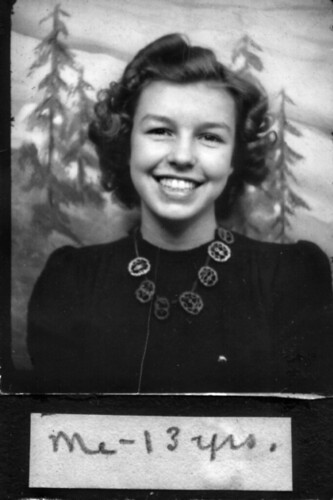
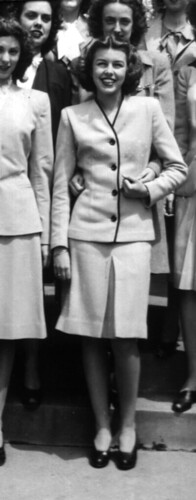
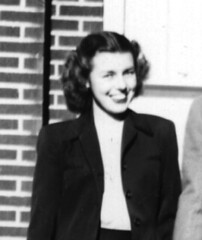
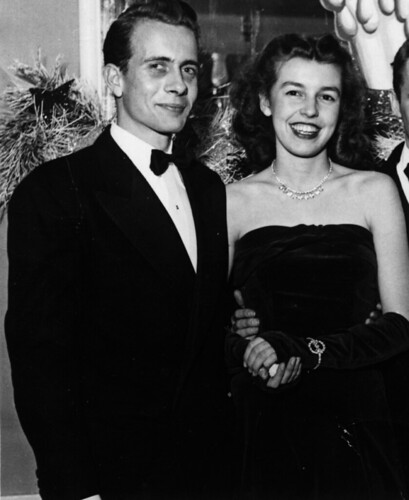
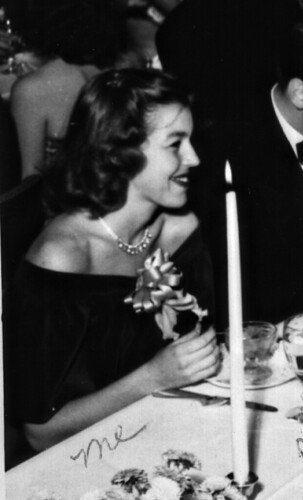
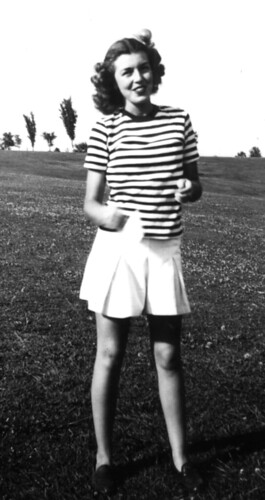

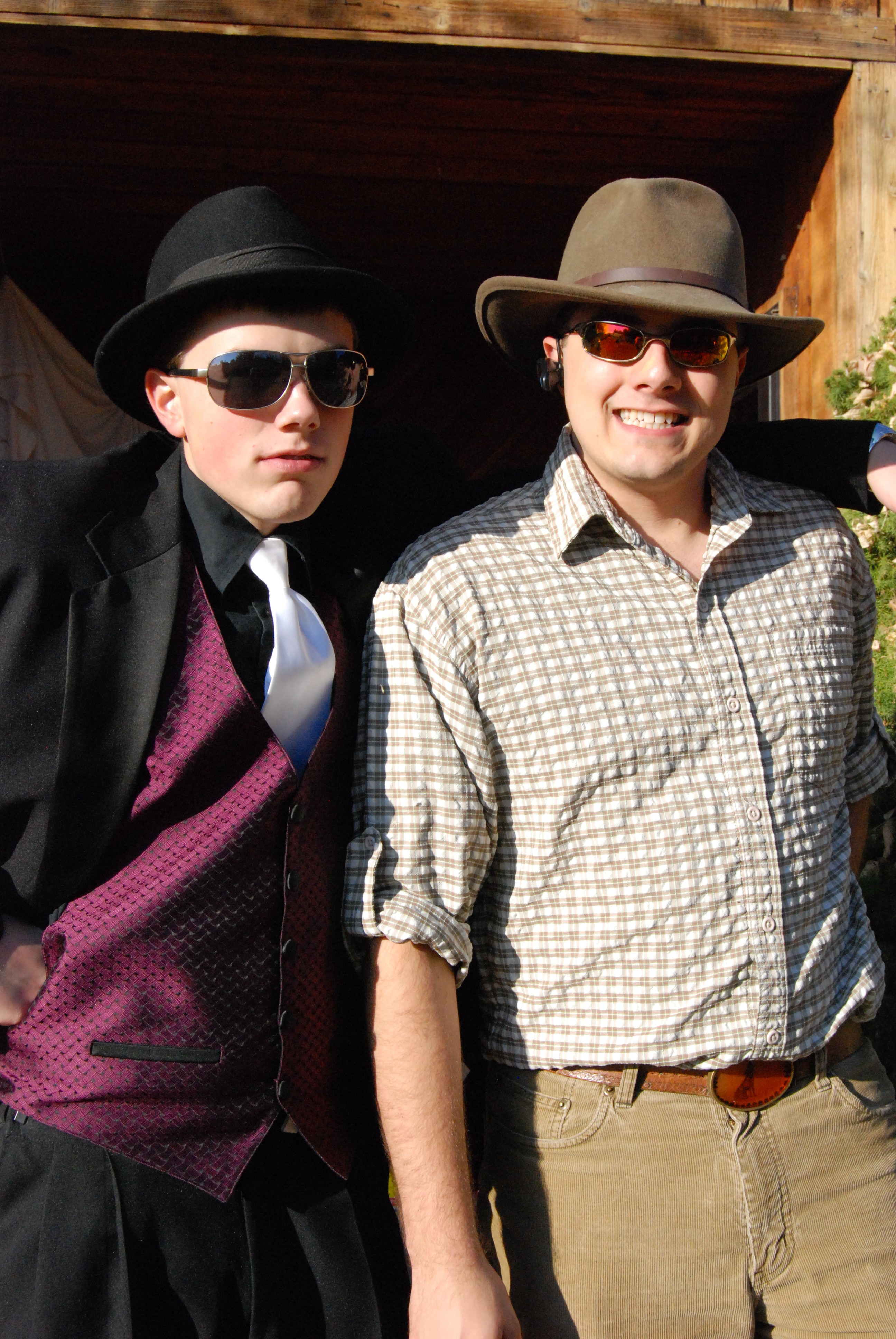
12 Responses to And Mommy starts to fade